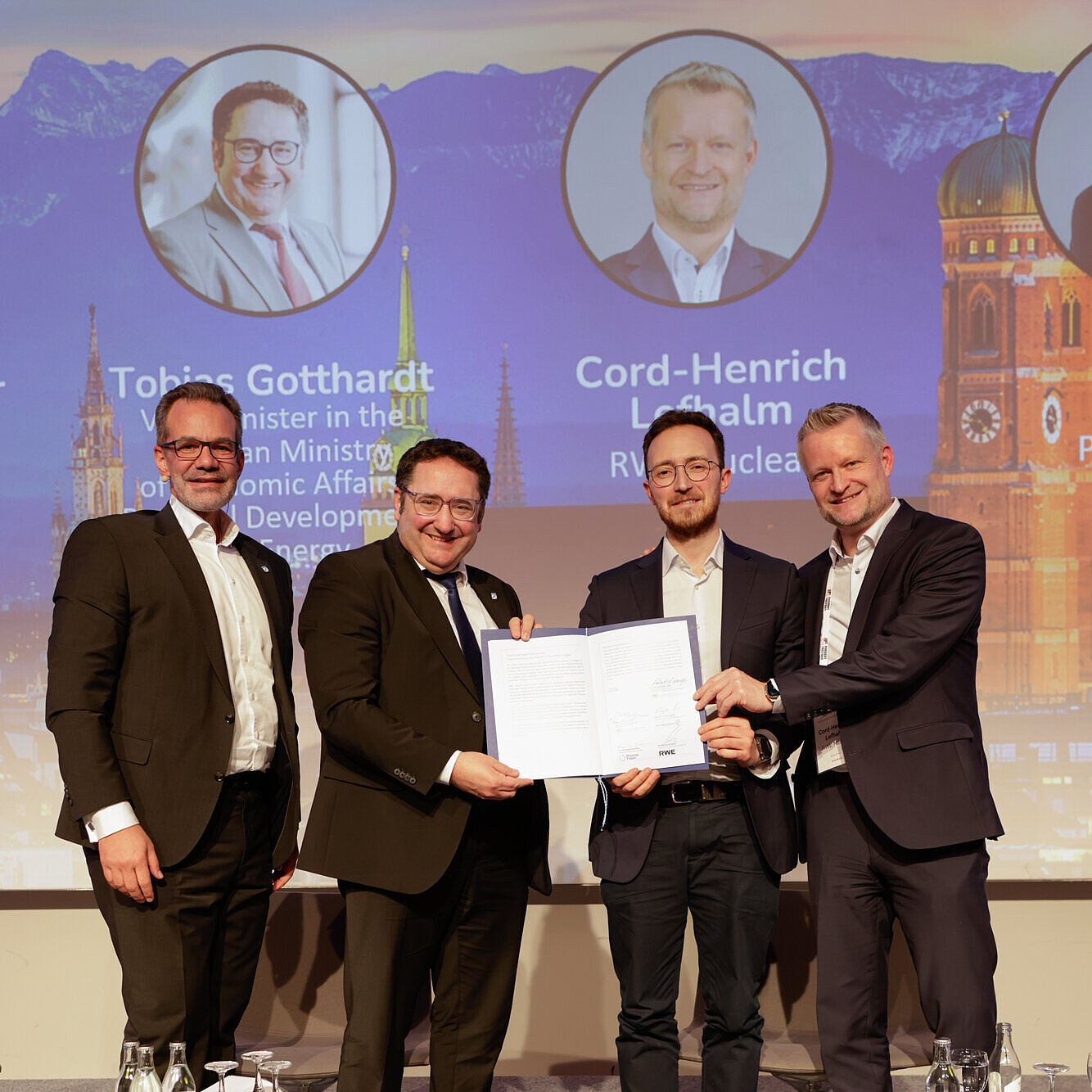Wind farm in Bavaria's chemical triangle more likely again
11.06.2024
Source: Energie & Management Powernews
The majority of the citizens of Marktl in Upper Bavaria have nothing against wind turbines on their municipal territory. This is the result of a referendum.
The referendum in Marktl, which was about four wind turbines in the municipality, makes the construction of a large Altötting wind farm to supply industry in the chemical triangle more likely. It was originally supposed to comprise 40 wind turbines, generate 288 MW, cost 400 million euros and be built on an area of 5,000 hectares in the state forest. However, the rejection by citizens in the municipality of Mehring, on whose territory ten wind turbines were to be erected, meant a serious setback for the project in January.
A slimmed-down concept was then developed with the involvement of Bavarian Minister of Economic Affairs Hubert Aiwanger (Free Voters), which now comprises 27 wind turbines. Aiwanger also had to listen to fierce criticism after the negative referendum in Mehring. The accusation was that he had not taken care of this in advance and preferred to go farmer demo hopping.
60.2 percent approval
The Minister of Economic Affairs has now expressed his satisfaction with the outcome of the Marktl referendum, which saw 60.2 percent approval, 39.5 percent no votes and a voter turnout of 70 percent. "The clear approval of the population of Marktl is a good sign for the energy transition in Bavaria. You can see here that if you address the fears of the local people and enter into a dialog with them about the importance of expanding wind energy, you can also achieve acceptance for large wind projects in Bavaria," he is quoted as saying in a statement from the state government. At the same time, he thanked the citizens and spoke of a good and viable compromise that had convinced people.
The key points of the rescheduling together with the Franco-German operating company Qair are:
- The increase in the distance between the wind turbines and closed residential areas to 1.200 meters,
- the requirement that residential buildings should not be surrounded by wind turbines at a radius of more than 180 degrees.
- Two wind turbines on Neuötting municipal territory were removed in order to take into account the special situation of the small Marktl district of Schützing.
Aiwanger is now also clearly committed to the need to expand wind power in Bavaria and the district of Altötting: "Bavaria needs an expansion of all renewable energies. In combination with photovoltaics, storage and base load-capable hydropower, wind turbines increase the regional security of electricity supply. This is also a key factor for the future of the energy-intensive chemical triangle."
Gigantic demand for electricity
The Bavarian chemical triangle extends across the south-east Bavarian districts of Altötting, Mühldorf and Traunstein. The most important production sites are Burghausen (Wacker Chemie, OMV refinery), Trostberg (Alzchem, BASF), Waldkraiburg and Burgkirchen (Gendorf Chemical Park). 5 billion kWh - 8 percent of total electricity consumption in Bavaria, 1 percent calculated for the whole of Germany - are consumed here. However, electricity from renewable energy (and not only that) is in short supply in Bavaria due to the lack of wind turbines and unfinished power lines that could transport it from the north German coast to the south.
In order to better supply the companies in the chemical triangle, the transmission system operator Tennet is planning two new large power lines, as reported, and Bayernwerk is planning the construction of new substations and lines in the distribution grid. The investments are in the three-digit million range.
In the Altötting citizens' initiative, which opposes the wind farm plans, there has been a lot of turmoil in recent weeks: three members left "Gegenwind" due to the increasing influence of the AfD in the group. A lawyer also ended the collaboration for the same reason.
Author: Günter Drewnitzky



